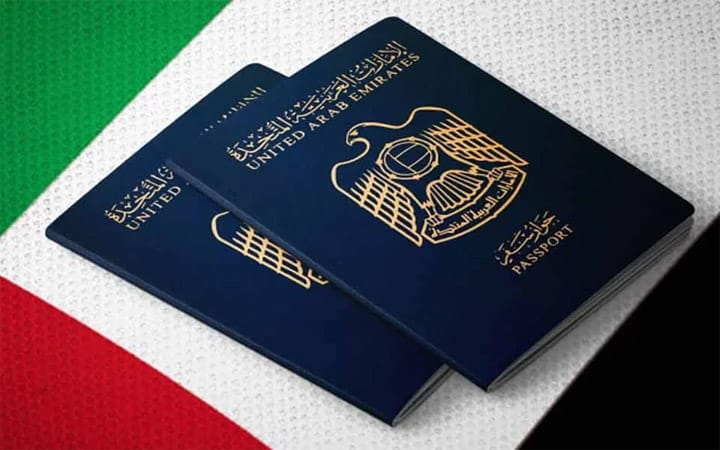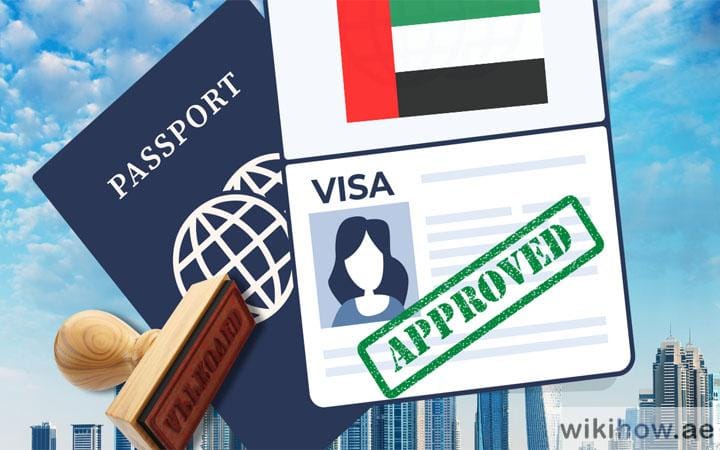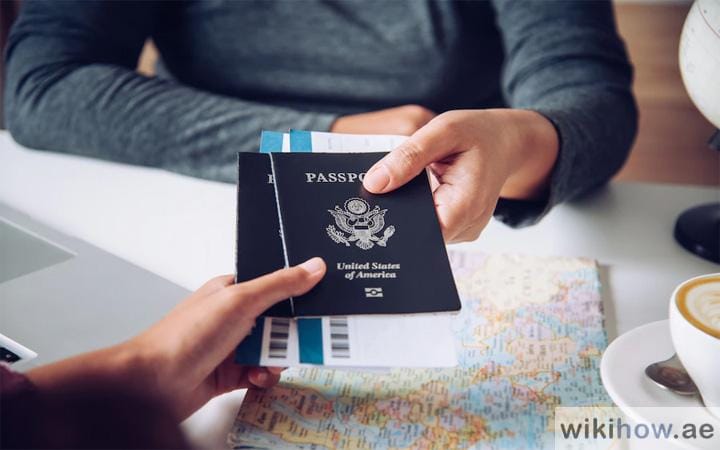UAE Residency Visa: The Ultimate 2026 Guide to Living and Working in the UAE

The UAE residency visa is one of the most sought-after permits in the Middle East, offering expatriates the opportunity to live, work, and invest in the United Arab Emirates. Getting this visa gives you access to a world of opportunities, regardless of your status retired, student, skilled professional or business owner. By streamlining its residency requirements in 2026, the UAE has made it simpler than ever for foreigners to establish long-term stability in the area. We will continue to examine the UAE residence visa in more detail. Stay with us.
Why Reside in the United Arab Emirates?
Selecting the UAE residency visa gives you access to one of the world’s most alluring locations for expatriates. Few nations can compare to the Emirates’ combination of modern living standards, cultural diversity and opportunities for professional advancement. Let’s examine the main factors that influence millions of foreigners to make the United Arab Emirates their second home, including some of the Best places to live in UAE.

Economic Opportunities
The UAE has developed into a major international business center that draws both startups and multinational companies. The nation offers a wealth of employment opportunities for professionals in all fields thanks to its thriving financial, logistics, real estate, technology, renewable energy and tourism sectors. The government also actively encourages foreign investment through tax-free income, free zones, and business-friendly policies, which draws in investors and entrepreneurs.
Lifestyle and Quality of Life
The UAE offers a world-class lifestyle, which is one of its biggest lures. The nation is home to some of the greatest entertainment and leisure options in the world, as well as upscale residential neighborhoods, shopping malls, and modern infrastructure. Additionally, there are first-rate medical facilities, international schools, and a multicultural community with over 200 different nationalities coexisting peacefully. The UAE provides an unmatched quality of life, whether it is the skyscrapers of Dubai, the cultural legacy of Abu Dhabi, or the tranquility of Sharjah’s beaches.
Security and Safety
The UAE is a popular destination for both individuals and families, as it is consistently ranked as one of the safest countries in the world. Residents have a sense of security that is difficult to find elsewhere because of the low crime rates, stringent laws, and robust law enforcement. Because of the government’s strong emphasis on stability, the UAE is known as a safe haven for foreigners looking to settle there permanently.
Types of UAE Residency Visas
Various types of expatriates, including skilled workers, investors and retirees, can be accommodated by the UAE residency visa system. People from a variety of backgrounds can find a suitable way to live in the Emirates thanks to the distinct eligibility requirements, benefits and duration of each type of visa. The primary residency visa categories for 2026 are listed below:
1. Employment Residency Visa
The most popular type of UAE residency is this one. Because it is sponsored by an employer in the United Arab Emirates, the majority of the application process is managed by the company. The employment visa, which usually lasts two to three years with the possibility of renewal, is best suited for professionals, skilled workers, and specialists. If a person meets the salary requirements, it permits them to sponsor their family members and live and work lawfully in the United Arab Emirates.

2. Investor Residency Visa
The investor residency visa offers business-minded people and entrepreneurs a clear path to permanent residence. Candidates must make investments in UAE-based startups, real estate or already-existing companies. Successful applicants frequently obtain multi-year visas (up to 10 years under the Golden Visa program), though the minimum investment requirement varies by emirate. For people looking for stability and financial freedom in a tax-friendly setting, this option is particularly alluring.
3. Freelancer and Remote Work Visa
The UAE launched a freelancer and remote work visa in response to the growing number of digital nomads. For professionals who work remotely or independently for businesses outside of the United Arab Emirates, this category is perfect. It permits remote workers, designers, programmers, consultants and content producers to live lawfully in the nation and take advantage of its contemporary way of life. Validity typically lasts for a year, though it may be renewed.
4. Family Residency Visa
A Family visa in UAE allows residents with valid visas to share their benefits with family members. If a person meets the minimum income and accommodation requirements, they can use this option to sponsor their spouse, kids, and dependents. Family visas guarantee stability and unity for foreigners hoping to establish a long-term life in the United Arab Emirates.

5. Student Residency Visa
With a number of top-notch universities and international campuses, the UAE has grown in popularity as a place to pursue higher education. International students who are accepted into recognized universities can apply for a student residency visa in uae, which is normally good for the length of their studies. If a student achieves academic excellence or satisfies special requirements set by the government, they may also be eligible for extended visas.
6. Retirement Visa
The UAE retirement visa is the ideal choice for retirees looking for a modern yet tranquil lifestyle. Financial stability requirements, such as a minimum monthly income, savings, or real estate investment, must be met by applicants in order to be eligible. This visa, which is typically granted for five years and is renewable, enables retirees to take advantage of the UAE’s opulent lifestyle, first-rate medical care and year-round sunshine without having to work.
Essential Conditions for Eligibility
Applicants must confirm that they fulfill the necessary eligibility requirements before submitting an application for a UAE residency visa. There are general requirements that apply to all categories, but the requirements also differ based on the type of visa.
General Criteria
The following prerequisites must be fulfilled by each applicant for a residency visa:
- Valid Passport: At the time of application, your passport must be valid for at least six months.
- Clean Criminal Record: Candidates must show that they have behaved well and have no criminal history.
- Financial Stability: To prove that one can sustain oneself and dependents during the stay, proof of adequate income or funds is needed.
- Health Insurance Coverage: To guarantee access to healthcare services in the United Arab Emirates, all residents must have comprehensive medical insurance.
These broad requirements make sure that applicants can live in the nation legally and affordably without putting a strain on the public coffers.
Specific Requirements by Visa Type
Each type of visa has specific requirements for eligibility:
- Employment Visa: Needs an employment contract and a verified job offer from an employer in the United Arab Emirates.
- Investor Visa: Candidates for an investor visa must demonstrate that they own real estate, stock in a company, or have made a sizable financial investment in the United Arab Emirates.
- Freelancer/Remote Work Visa: Proof of continuous remote work or freelance contracts, as well as income statements, are necessary for a freelancer or remote work visa.
- Family Visa: The sponsor must offer appropriate housing and meet the minimum salary requirement, which is typically between AED 4,000 and 10,000, depending on the emirate.
- Student Visa: Student visas require proof of tuition payment and admission letters from recognized UAE universities.
- Retirement Visa: Candidates for retirement visas must provide proof of their financial stability, such as savings, pensions or real estate.
Required Documents for a UAE Residency Visa
A complete set of documents must be submitted by applicants in order to be considered for a residency visa in the United Arab Emirates. The following are typically needed, though the precise list may change depending on the type of visa:
- Identity Records: A passport that is valid for at least six months and Current passport-sized photos (typically two to four copies)
- Financial Evidence: Employer’s salary certificate (for employment visas) and Recent three to six-month bank statements
- Medical Records: Findings from the UAE’s required medical examinations (X-ray and blood test) and A current health insurance policy that covers the entire stay
The residency process is streamlined and made more transparent by these documents, which guarantee that applicants fulfill the legal, financial and health requirements of the UAE.

Step-by-Step Application Process
Although applying for a UAE residency visa may initially appear difficult, the procedure is very well-planned and methodical. Every stage is intended to guarantee that candidates fulfill the security, health and legal requirements set forth by the UAE government. For newcomers, an Expat guide to living in UAE can provide valuable insights alongside the official process. The key phases are explained in detail below:
Step 1: Permit for Initial Entry
Getting an entry permit, which serves as a temporary authorization to enter the UAE for residency purposes, is the first step. Usually, a sponsor such as an employer, university or relative arranges this permit. Investors and independent contractors can apply directly through official websites such as GDRFA or ICP. The applicant must finish the remaining residency requirements within the 60 days that the entry permit is normally valid.
Step 2: Health Assessment
Applicants must go through a medical examination at government-approved medical facilities after entering the United Arab Emirates. A chest X-ray and blood test are part of the examination to check for infectious diseases like hepatitis and tuberculosis. To proceed, you must pass this step because failing the test could result in your visa being denied.
Step 3: Registering for an Emirates ID
The next step for applicants is to apply for an Emirates ID, which is the official identity card for all citizens of the United Arab Emirates. At an Emirates Identity Authority facility, biometric information such as fingerprints and photos are gathered during this phase. Everyday tasks like opening a bank account, getting healthcare, renting a home and even traveling within GCC nations require an Emirates ID.
Step 4: Stamping the Residency Visa
Placing the residency visa in the applicant’s passport is the last step, known as visa stamping. The General Directorate of Residency and Foreigners Affairs (GDRFA) in the relevant emirate handles this. Depending on the type of visa, the stamped document contains personal information, sponsor details, and the validity period, which can vary from one year to ten years. It also attests to the person’s legal status as a resident of the United Arab Emirates.
Recent Changes and Updates (2026)
To draw in international talent and investors, the UAE made significant changes to its residency system in 2026. A broader range of individuals, including investors, entrepreneurs, scientists, researchers and highly qualified professionals in industries like healthcare, technology and engineering, can now reside for 10 years under the Golden Visa program. Residents benefit from increased stability thanks to this long-term visa, which also solidifies the UAE’s standing as a major center for business and innovation.
Additionally, the government has loosened restrictions on remote work and freelancer visas, making it simpler for digital nomads to live and work in the nation. Residents can now bring their dependents more easily because family sponsorship regulations have been loosened. Additionally, the majority of applications can now be completed online thanks to digital platforms like ICP and GDRFA, which reduce processing time. The United Arab Emirates maintains high living standards and high-quality healthcare for all of its citizens by enforcing stricter health insurance requirements.
Conclusion
Getting a UAE residency visa gives you access to one of the world’s most vibrant and rapidly expanding economies. The UAE provides a variety of options to suit a range of lifestyles and professional goals, including employment, investment, freelancing, education, and retirement. The country’s commitment to luring international talent is demonstrated by recent developments like the Golden Visa’s expansion and more approachable family sponsorship regulations. The many advantages of living in the Emirates, such as top-notch infrastructure, tax benefits, safety, and a multicultural community, are yours if you carefully prepare your documentation, meet eligibility requirements and keep up with the most recent regulations. Visit WikiHow to learn more about the process and to get the most thorough information about the United Arab Emirates. Don’t forget to leave a comment with your thoughts and experiences to assist others in their travels.
FAQs
1. How long does it take to get a UAE residency visa?
The processing time usually ranges between two to four weeks, depending on the visa type and the emirate where the application is submitted.
2. Can I sponsor my family under a UAE residency visa?
Yes. Most residency visa holders are eligible to sponsor their spouse, children and dependents, provided they meet the minimum salary and housing requirements.
3. Is health insurance mandatory for UAE residency?
Yes, comprehensive health insurance is a requirement for all residents.





